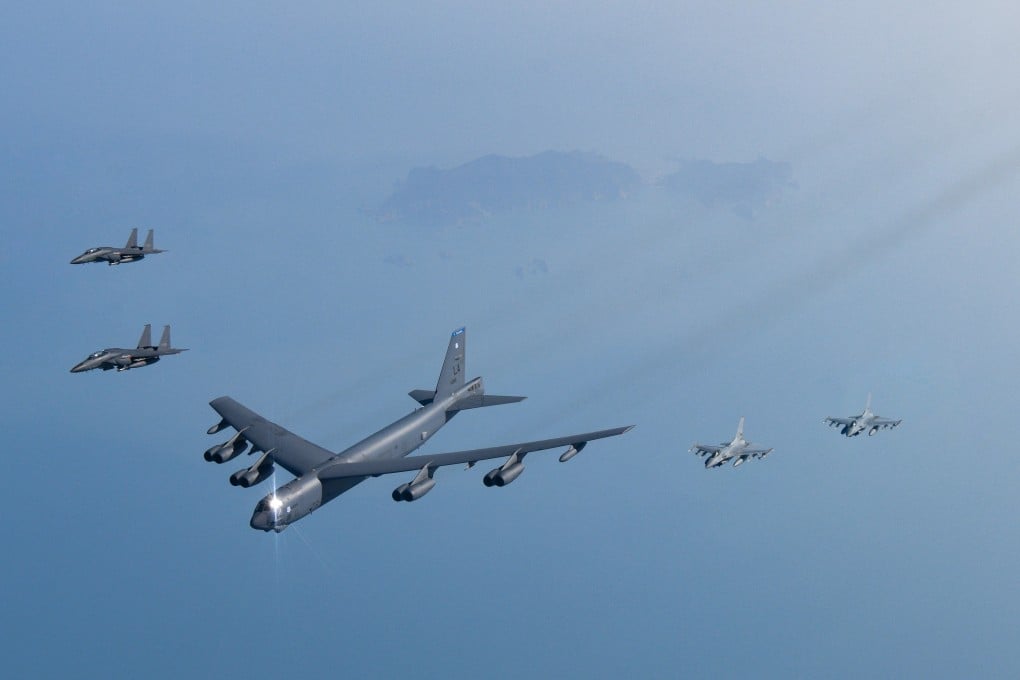Advertisement
South Korea says boosting 3-way defence ties with US, Japan won’t ‘antagonise’ China
- A high-ranking government official said the initiative was aimed at tackling North Korea and expressed hope it will not affect Seoul’s strong trade ties with Beijing
- But as Yoon prepares for summit talks with Biden and Kishida, analysts say the move could ‘put the South in the front line of the new Cold War confrontation’
Reading Time:3 minutes
Why you can trust SCMP
43

South Korea has insisted it will not “antagonise” China despite the bolstering of a three-way defence cooperation with the United States and Japan as Seoul and Tokyo move closer to ease a long-standing dispute over wartime forced labour to tackle the threats posed by North Korea.
“The trilateral defence cooperation is aimed to preserve peace on the Korean peninsula in the face of the continuing threats from the North,” a high-ranking government official said on Friday.
“The strengthening of the three-way defence cooperation does not mean [South Korea] is antagonising China,” he said, adding Beijing will remain its top trade partner for years to come.
Advertisement
The official, who spoke on condition of anonymity, also hinted that South Korea would not get involved in a possible conflict between the US and China over Taiwan.
He repeated Foreign Minister Park Jin’s earlier statement that “peace and stability across the Taiwan Strait is crucial to maintain tranquillity in the northeast Asian region”.
Analysts said the existence of different perceptions and policies on China among the three countries could potentially weaken the unity of the latest security plan.
Advertisement
Select Voice
Select Speed
1.00x